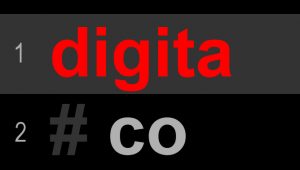tl;dr: Welcome to digitaco, where I discuss phenomena of national identity and cultural practices in Mexico and their forms of representation in a digital environment.
First, I want to apologize to every connoisseur of the Mexican cuisine: I am fully aware that the meal presented in the header is a (delicious) plate of enchiladas verdes. However, this is only one meaning of the conceptual blend of digitaco: national identity and cultural practices.
Everyone who has been to Mexico can testify this first hand by a close observation of the magical and transformative places, known as taquerías, that become the central hub of social life on the street (@my place in Mexico city was an auto mechanic that turned taquería at night).
Second, the concept also entails the blend of digital and commentary.
We already have established several transformation processes in the digital world of localization e.g. in form of Regional Internet Registry and the forms of representation of Internetprovider (ISP) within the IPv6 (protocol).
In online platforms localization – „the process that makes locals feel like you ’speak their language'“ (Google Digital Garage: „Being understood abroad“) – meets marketing (SEM) and optimization processes (SEO) and therefore the configuration of „user models“ and their own symbols and representations of identity within the corresponding communities on the platform.
In other words: identity meets algorithm.
This can lead to problems and discussions about representation and visibility on platforms like YouTube, as has been discussed by the preference of media outlets on topics like Covid 19 and the deletion of fake news (5G supposedly spreading the virus) as well as the inclusion/exclusion of PewDiePie in toplists produced by YouTube (e.g. YouTube Rewind):

In a way, I follow the practice and the heterotopy of the auto-mechanic/taquería on this blog as well. I will present findings, problems and research questions of my own PhD research here disentangling cultural practices, identities and the digital environment!
PD: Sorry for using English here.
As a German scholar with Mexican background, who usually writes in German about Spanish speaking culture, there is no obvious choice of language to be made. However, I think of English as more accesible in this web context. Generally, I prefer to communicate in German or Spanish respectively.


Neueste Kommentare